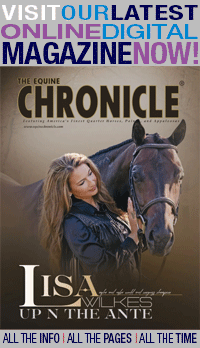Boarding Contracts – How They Help in an Emergency
Click here to read the complete article152 – Aug/Sept, 2018
BY JULIE I. FERSHTMAN, ATTORNEY AT LAW
 A boarded horse colics severely and requires emergency surgery, but the boarding stable cannot reach the owner to consent. Days earlier, the owner left for a vacation in a remote place with no phone nor internet access. Despite hours of effort, the stable cannot find the horse owner. Finally, with no way of knowing whether the owner will approve costly surgery, the stable directs the veterinarian to euthanize the suffering horse.
A boarded horse colics severely and requires emergency surgery, but the boarding stable cannot reach the owner to consent. Days earlier, the owner left for a vacation in a remote place with no phone nor internet access. Despite hours of effort, the stable cannot find the horse owner. Finally, with no way of knowing whether the owner will approve costly surgery, the stable directs the veterinarian to euthanize the suffering horse.
A week later, the owner returns from vacation, only to find that her horse is gone. Then, when she submits a claim with her equine insurer, the company denies her insurance claim because the owner violated the insurance policy’s condition to give the insurer timely notice of the horse’s illness and death.
Although emergencies are a foreseeable part of horse ownership, the rest of this scenario could have been avoided, as this article explains.
Damage Control – Everyone Has an Interest
Boarding stables and horse owners have every incentive to protect themselves and prevent disputes through well-drafted contracts. The boarding contract presents an excellent opportunity to address how the stable will handle veterinary emergencies when the owner cannot be reached.
Stables differ in how they want their contracts to address emergencies. For example:
Full authorization to the stable
Some contracts require the horse owner to give the stable full discretion to handle veterinary emergencies as the stable deems appropriate, regardless of expense. Contracts can also confirm that in doing so, the stable is acting as the owner’s agent to procure the services but not to pay the fees.
Specified limit on expenses the stable can authorize in the owner’s absence
Other boarding contracts ask owners to give a dollar limit for how much cost the stable can authorize on the owner’s behalf in the event of emergencies. The problem is, expenses cannot always be estimated in emergency situations. Also, should the stable receive an estimate that exceeds the owner’s limit, even by a small amount, the stable could be placed in a difficult situation. That is, even if the stable follows the contract to the letter and tells the veterinarian to put down the sick horse because the veterinary estimate exceeds the owner’s limit, the horse owner might be angry at the stable, anyhow, for having the horse euthanized over an extra few hundred dollars.
152 – Aug/Sept, 2018










